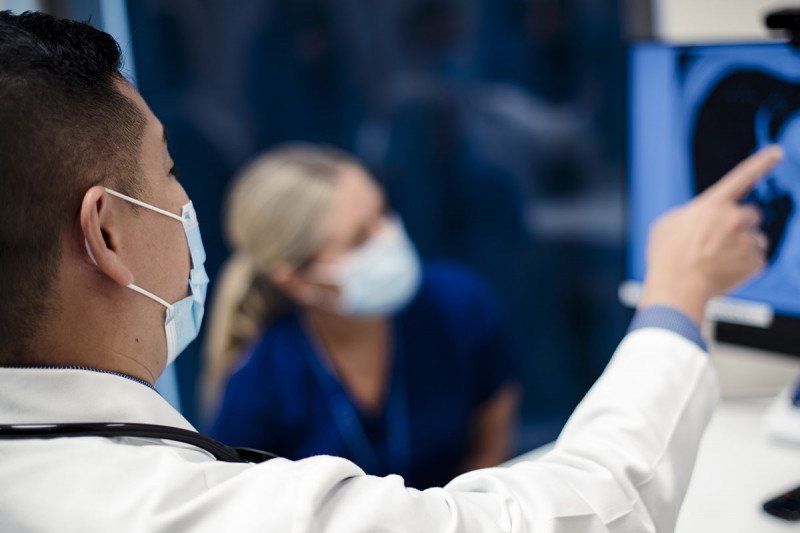MSK Shares Proven Steps on How to Prevent Cancer

To mark National Cancer Prevention Month this February, Memorial Sloan Kettering Cancer Center (MSK) today shared several tips to help reduce the risk of developing cancer including steps to help identify cancer early, before it spreads and often becomes more difficult to treat.
The advice comes as cancer screenings and other preventive measures have fallen steeply due to the COVID-19 pandemic, a dynamic that experts agree will likely lead to an increase in cancer diagnoses and deaths over the coming months and years. The National Cancer Institute expects 10,000 excess deaths from breast and colorectal cancers over the next decade in the U.S., and a UK study found that the drop in screening and early treatment will lead to a substantial increase in lung and colorectal cancers.
Cancer screenings
One key prevention tactic is cancer screenings, which are available for several different types of cancers – including breast, lung, cervical and prostate cancers. “The alarming drop in cancer screenings means that fewer physicians will identify the disease in its early stages,” said Luis A. Diaz Jr., MD, who leads MSK’s Precision Interception and Prevention (PIP) Program. The PIP Program combines the principles of precision medicine with research on prevention and early detection.
“Cancer screenings have been proven to work. We urge everyone to resume their regular screening schedule – or to schedule a screening if they haven’t already. Hospitals and clinics are extremely safe, and the cost of missing a screening becomes very steep if an individual contracts cancer that goes undetected,” he added.
Screenings are certainly important for adults over 50, but with a recent increase in cancer diagnoses for people under 50 years old – colorectal cancer in particular – it’s important for adults under 50 to remain vigilant about their health, talk to a doctor about any unusual symptoms you may be having, and consider screening options if appropriate for their level of risk .
Genetic testing
A similarly powerful tool for cancer prevention is genetic testing. Particularly valuable for individuals who were diagnosed with cancer at an early age or have a family history of cancer, genetic testing is a proven way of gauging a person’s hereditary risk of contracting cancer.
“When it comes to cancer prevention, knowledge is the most powerful tool,” said Dr. Diaz, who is also Head of the Division of Solid Tumor Oncology at MSK. “Modern technology allows us to build a strong understanding of whether someone is notably at-risk of developing cancer. While the prospect of knowing you’re at a higher risk can be daunting, genetic testing allows individuals to take steps to reduce those chances.”
To see whether genetic testing may be helpful for you or a loved one, refer to the questions that MSK has provided here.
Day-to-day prevention measures
There are also everyday steps that individuals can take to help prevent cancer, including:
- Getting vaccinated: Getting vaccines for Hepatitis B and HPV not only help prevent those conditions, but also reduce the risk of developing several different types of cancers. The HPV vaccine is now approved for ages 11 – 45 and is a crucial tool is preventing certain cancers in both men and women.
- Eating a healthy diet: To the extent possible, eat lots of fruits and vegetables and limit alcohol consumption
- Exercising 3-4 times a week: While the winter season and widespread gym closures make it difficult to exercise, it’s important to find regular time for movement.
- Avoiding tobacco products: Given the effects of COVID-19 on the lungs, and the well-documented harm that smoking and tobacco does to the body, now is the time to quit (and to potentially consider a lung cancer screening if eligible).
- Protecting yourself from the sun: When spending time outside – not only when at the beach or on the ski slopes but even for a daily run – using sunscreen is a crucial (and easy) way to protect one’s skin from damage and reduce the risk of skin cancer.
“Part of the reason that cancer is such a difficult disease to prevent and cure is that it has such a wide range of causes,” shared Dr. Diaz. “That said, there are many steps we can take to identify cancer early and reduce our risks of contracting it to begin with. It is never too late to join the effort to prevent cancer.”